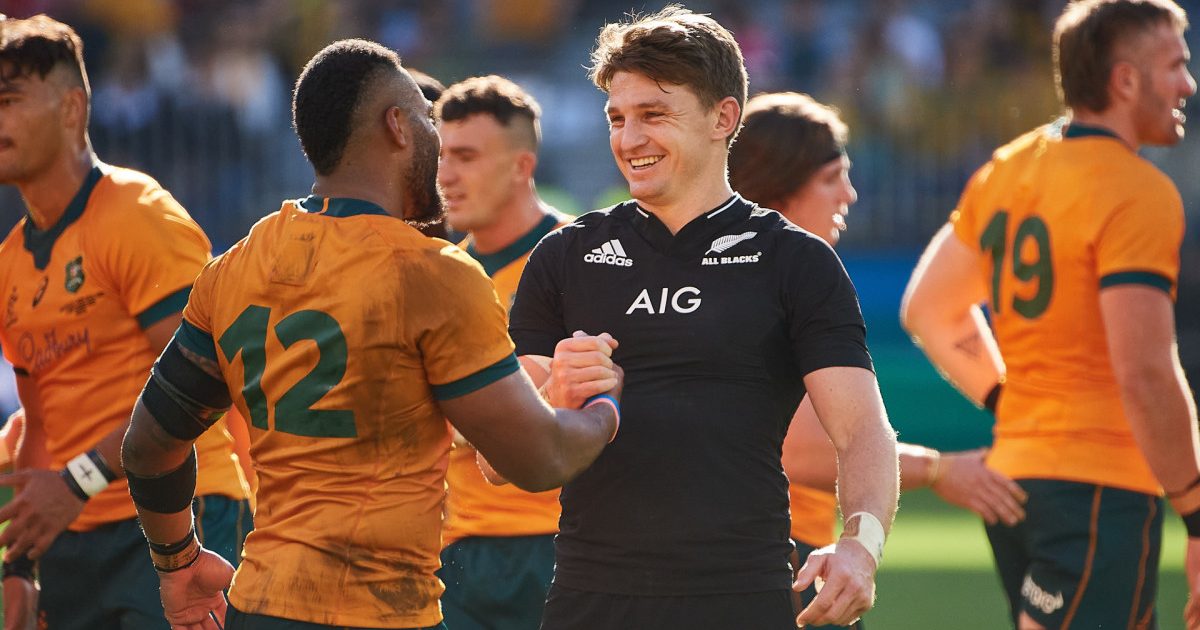Bledisloe Cup rugby is just better during the day time

I’m excited already.
Yep, there’s just something about the quality of day time rugby and, in this instance, the nostalgia it engenders.
Rugby Australia (RA) is considering staging the September 22 test between the Wallabies and All Blacks in the afternoon.
It’s sound logic on a couple of fronts from RA.
They can dress it up as an attempt to connect with their audience and the grassroots rugby community, but the reality is the now-traditional evening kickoff would pit the Wallabies against the NRL playoffs and a potential ratings bath.
The other aspect is the games are broadcast by the same network.
It makes sense for the broadcaster to split the games up and, in theory, capture viewers from day time into night.
Commercially, there’s no benefit in competing broadcasts either. Definitely not for RA and its loyal sponsors.
Whatever the machinations, day time rugby is just better.
Australia has hosted three day time Bledisloe Cup clashes in the professional era: in 1995, 1996 and 2021.
Each was a cracker.
I have a special fondness for 1996, when the All Blacks came back from the dead to win in Brisbane.
It was Christian Cullen, from memory, that scored the clincher, after Wallabies No.8 Michael Brial had turned All Blacks centre into a punching bag.
I was playing club rugby in Manawatu back then. As was custom, kickoffs were moved forward so we could assemble afterwards to watch the test.
I remember piling into some dingy room beneath the grandstand at the Palmerston North Showgrounds with a couple of hundred others to view it on a big screen.
The beers and high-fives were definitely flowing when the All Blacks got up to win.
Maybe we were young and naive. Maybe the game was just better back then.
I don’t know.
All I can say was the care-factor about All Blacks results was massive and the team had few, if any, knockers in the media or general public.
Home or away, the team predominantly had day time kickoffs and lives were rearranged to accommodate it. Taping the game or catching a few highlights later was unthinkable.
Years later, I had the good fortune to work on a television show with Bunce.
I never bothered him with the Brial stuff, but lapped up his other stories about life under coaches Laurie Mains and then John Hart.
Many of those men in black were icons as much as rugby players: Lomu, Fitzpatrick, Brooke, Jones, Cullen, Brown, Loe and Bunce himself.
Day time rugby doesn’t pay the bills. I think we all reluctantly accept that.
But it is a better product and spectacle and, for us actual fans, that’s what’s important. Not how much you can charge television advertisers after dark.
September’s Bledisloe might prove a one-off or a novelty, which is a shame.
But that’s no reason not to enjoy it when it rolls round.
Rugby in Australia has to start going about things differently. Their current model is tired and unsuccessful and change is required.
Perhaps day time tests can begin to become the game’s point of difference?
I doubt it, but I know I’ll be putting the rest of my life on hold to gather with a few mates on September 22.










































































Day time matches are great and make it heaps easier for families and youngens to get to games. I’m really looking forward to the Bledisloe this year.